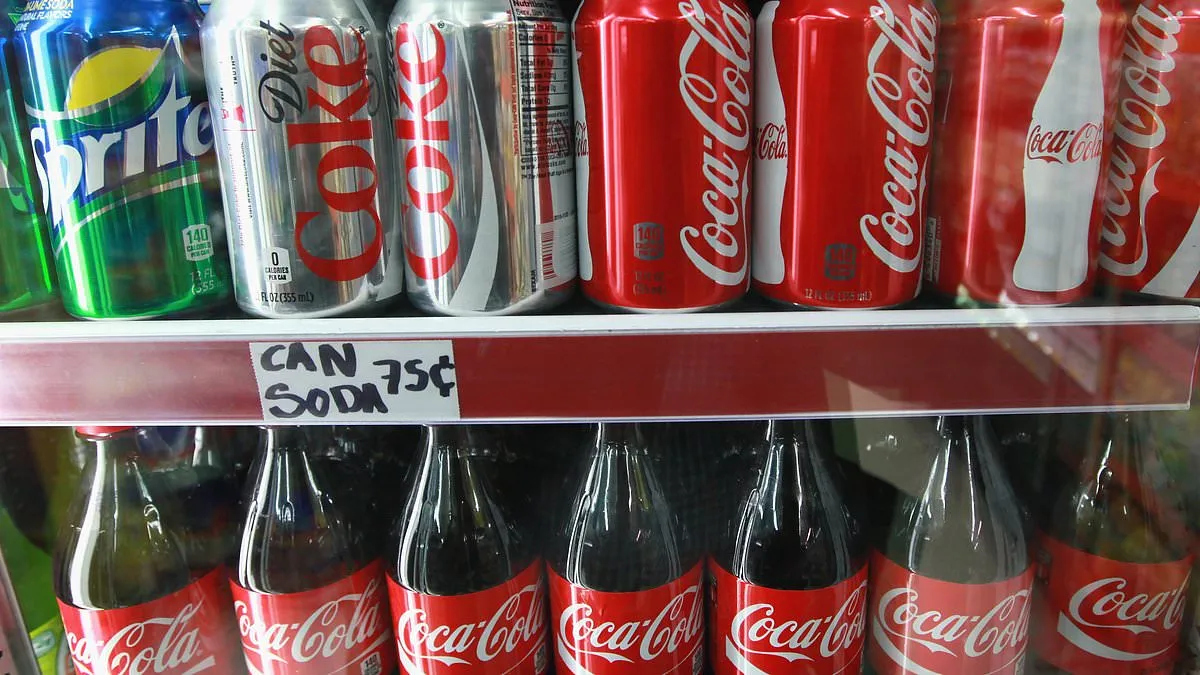
Recent research has revealed alarming findings about the consumption of fizzy drinks, indicating that drinking just one can of fizzy drink per day—whether diet or full-fat—could significantly elevate the risk of developing a severe liver condition known as metabolic dysfunction-associated steatotic liver disease (MASLD). Unlike the commonly known causes of liver problems, such as heavy alcohol consumption, MASLD arises when excess fat accumulates within the liver, and its prevalence is reportedly on the rise in the UK.
The study conducted by Chinese researchers has shown that consuming as little as 250ml of fizzy drinks per day—equivalent to less than one can—can increase the risk of MASLD by up to 60 percent. The researchers analyzed the dietary habits of over 123,000 British adults and found that individuals who regularly consumed sugar-sweetened beverages, such as Coca-Cola, had a 50 percent higher likelihood of developing MASLD. In contrast, those who opted for low or non-sugar-sweetened drinks, like Diet Coke or Sprite Zero Sugar, faced an even greater risk, with a 60 percent increase in MASLD incidence.
Experts are now urging a reevaluation of the perceived safety of diet alternatives to sugary drinks, as these findings suggest that they may pose greater risks to liver health than previously thought. Lihe Liu, a gastroenterology researcher at the First Affiliated Hospital of Soochow University, emphasized that both sugar-sweetened and artificially sweetened beverages are widely consumed, yet their effects on liver health are not well understood. Liu stated, "Our study shows that low or non-sugar-sweetened drinks were actually linked to a higher risk of MASLD, even at modest intake levels such as a single can per day."
Given these findings, Liu recommends limiting both sugar-sweetened and artificially sweetened drinks, asserting that water remains the best choice for hydration. Water not only helps to eliminate metabolic burdens but also prevents fat accumulation in the liver. The study tracked 123,788 participants who had no prior history of liver disease and found that 1,178 individuals developed MASLD over a 10-year follow-up period, with 108 dying from liver-related causes.
Moreover, the researchers found that replacing either sugar-sweetened or low or non-sugar-sweetened drinks with water significantly reduced the risk of MASLD by 12.8 and 15.2 percent, respectively. The scientists believe that sugary beverages can cause rapid spikes in blood glucose and insulin levels, leading to weight gain and increased uric acid levels, all contributing to the accumulation of fat in the liver. In contrast, low or non-sugar beverages may negatively impact liver health by altering the gut microbiome and disrupting the feeling of fullness.
The complete findings of this study will be presented at the United European Gastroenterology annual congress in Berlin on October 7. The researchers aim to further explore how sugar and its substitutes interact with the gut microbiome in relation to liver disease. The British Liver Trust estimates that MASLD currently affects one in five people in the UK, with some experts suggesting that the true figure could be as high as 40 percent. Alarmingly, around 80 percent of those affected remain undiagnosed, as this disease often presents with no obvious symptoms or symptoms that are misinterpreted as less serious issues.
Professor Philip Newsome, Director of the Roger Williams Institute of Liver Studies at King's College London, has highlighted the increasing incidence of liver disease in the UK, noting that individuals who develop MASLD are often overweight or diabetic. He cautions against the misconception that only alcohol can lead to liver scarring, emphasizing that excess fat and uncontrolled blood sugar levels can produce similar outcomes. As research continues, raising awareness about the risks associated with fizzy drinks and promoting healthier beverage choices is essential for public health.